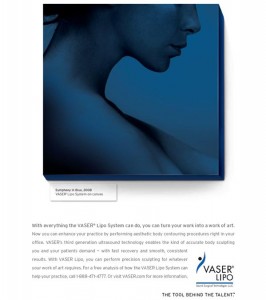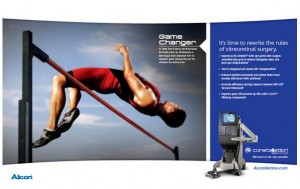Device ad-vice: dating vs. commitment: pharma vs. devices

Nancy Beesley
HCB Health
I started in medical advertising more than 20 years ago in a rising star agency that specialized in pharmaceutical marketing. I was young, looking to make my bones in the ad world, and I didn’t want to do Coca-Cola. I wanted pharma.
Pharma was sexy. It had big budgets. I was mesmerized.
Sure, there were a few device accounts at the agency, but they weren’t coveted like their pharmaceutical counterparts. They didn’t have lots of clinical studies with double-blind placebo-controlled coolness. And device ads weren’t running during the six o’clock news.
Fast forward to the present. HCB Health is one of the leading global agencies for medical device marketing. And you know what? I’ve never been happier. Devices are my passion. I still love the science and competitiveness of pharma, but devices have stolen my heart. Let me tell you why.
"When a surgeon purchases a $350,000 piece of capital equipment, he’s making a commitment."
Pharma is a lot like dating. A doctor might write one antibiotic today and a different one tomorrow. He’s playing the field. But marketing a medical device is more like a marriage. When a surgeon purchases a $350,000 piece of capital equipment, he’s making a commitment. Implanting a stent or an intraocular lens that will last a patient’s lifetime is a promise. As a result, he will take a long time to believe in the technology and an even longer time monitoring the trial process.
The commitment goes both ways. There’s a connection not only between the doctor and the device, but between the doctor and the sales rep. Using a new device requires a lot of trust on the physician’s part. A rep can’t just drop off samples and hope for a phone call. He or she has to be there every step of the way, understand the doctor's needs and constraints, and know everything there is to know about the device in question.
Marketing and selling devices also requires patience, insight and plenty of discipline because devices are tools that are totally integrated into the physician’s world, especially in the case of surgeons, who are the heaviest users. Devices become extensions of their talents and skills.
"...many of the most critical advances in healthcare will come from the medical device industry."
What does this mean for marketers? Take a look at how we positioned a laser-assisted liposuction device for Sound Surgical Technologies. Plastic surgery is truly a blend of science and art, and we saw this device as a scientific medium for showcasing artistic skill. So rather than focusing on the product's new technology, we focused on how this tool can help plastic surgeons create masterpieces, i.e., The Tool Behind The Talent. We used a “blue nude” concept (and yes, we did a photo shoot – don’t you just love advertising?) and kept it simple but powerful.
Another thing that's strikingly different about marketing medical devices is how often you're rewarded. It happens when surgeons use a device for the first time and right there on the operating table, in their hands, experience a new technology that’s about to change their world.
And what about the patient? Following a cochlear implant, there’s that moment when someone can hear for the very first time. That’s not just cool – it’s heartwarming and breathtaking stuff. For us in device marketing, there’s often a feeling of gratification that you just don’t often get in pharma.
"...the opportunities for medical device marketers are a thrilling, wide-open frontier."
The technology we market can also change the way surgeons work. Alcon Labs brought the global market the Constellation, a surgical device for vitreoretinal surgery. It was so advanced that early adopters began using it for techniques and procedures they had never attempted before. It was a game-changing technology.
Building on this, we focused a marketing campaign on game-changer techniques in a field synonymous with games – sports. Dick Fosbury may not be the most well-known track star in the world, but you’ll know what he invented: the Fosbury Flop. It’s the backwards high jump technique that won him a gold medal at the 1968 Olympics and established what is now the de facto style for champion high jumpers. Like the Fosbury Flop, the Constellation changed the game. Vitreoretinal surgery would never be the same.
In the years ahead, many of the most critical advances in healthcare will come from the medical device industry. As the world’s seniors live longer, there will be an explosion in ortho replacements, ocular and cardiac implants, monitors for diabetes and other conditions, and advanced wound-care technologies.
All that's required to set the future in motion are unmet needs and good ideas. The possibilities for medical devices are endless, and the opportunities for medical device marketers are a thrilling, wide-open frontier.
This blog series will focus on marketing medical devices. You'll see entries not only by me, but by other key team members at HCB Health and, yes, even a client or two. We've had the great fortune to work in almost every category, bringing successful devices to market globally. You’ll read about topics that are unique to this industry, device problems we encountered, and how we resolved them.
And to keep it real, we’ll also discuss a few devices that didn’t fare well, because there’s a lot to be learned from failures. What didn’t work and why can be as important as the big success stories.
So while I don’t expect you to fall in love with devices the way I have, I hope you’re looking forward to our second date. And if we hit it off, maybe someday I’ll even get to meet your parent company . . .
Part 2 of this series: 'Best practices for handling a medial device recall' can be viewed here
About the author:
Nancy Byrnes Beesley is a partner and the chief marketing officer of HCB Health in Austin, Texas, one of the top 25 independent healthcare ad agencies in the U.S. A powerful motivator with strong device and pharma marketing experience, she leads the HCB Strategy team in delivering the agency's unique style of thinking. She is valued by clients for her market knowledge, business vision and straightforward approach.
For more information, email Nancy at nancy.beesley@hcbhealth.com or visit www.hcbhealth.com. Also check out the HCB blog "Left to my devices," part of the agency's larger "Med Men" blog. http://www.medmenblog.com/category/device-marketing/
What does the future hold for medical device marketers?












